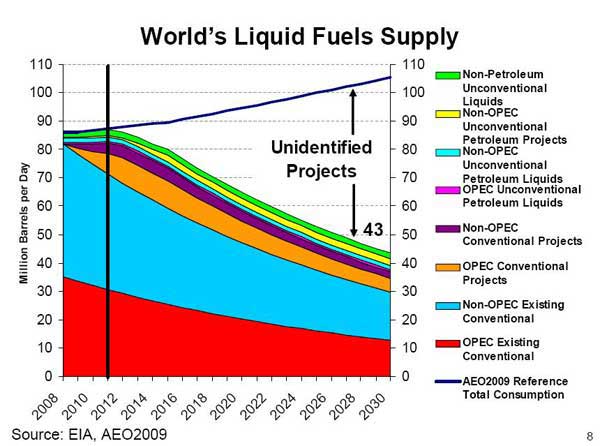No you're quite right of course. Although what I posted is merely the ideal model. In reality, the curve could be a lot flatter at the peak, and tails off a hell of a lot quicker. We have technology that can maintain constant rates of oil production, but instead of having a gradual decline that we can monitor and react to, the decline could be fairly rapid.
To put it another way, the throttle back in capacity means that even adapting to our current usage of oil isn't enough. I would suggest that before cars are abandoned, air travel should be. I would agree that there could be a transition to other fuel types, but even if you glance at the graph below, look at the gap in energy we have to fill to maintain our current lifestyles and how soon that's coming. We can't just turn on the taps for another energy source... as we don't have any ready.
I certainly don't mean to be apocalyptic, and apologies if it sounds it, I just don't believe that any Govt is currently doing enough to mitigate the end of cheap and abundant oil, and it will take a very real 'shock' for them to do so.




